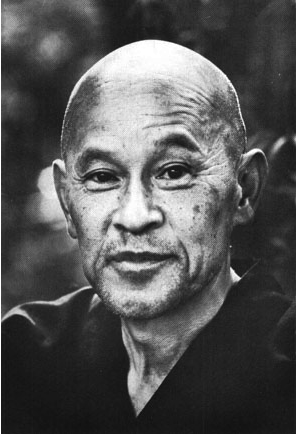Valentine’s Day isn’t for lovers.
It’s for all those who love—and that’s all of us.
Love isn’t a saccharine, facile thing. It’s tough stuff—it’s the stuff of protest, hard conversation, taking blame and educating out of one’s own ignorance. Love isn’t Hallmark movies, just—it’s waking up early to make the kids’ breakfast, working two jobs to pay the rent, sacrifice.
~
Love hurts.
Valentine’s Day isn’t for lovers. It’s for all those who love—and that’s all of us.
The flip side of love is loss. Even as we fall in love, we feel loss coming. Shunryu Suzuki Roshi talked about dying in every moment. This isn’t a bad thing—this feeling of being haunted by impermanence is what makes love real, sweet, heartbreaking, tender, open, raw, vulnerable and precious.
Even for those who fall in love in high school and get married and live happily ever after, their love begins anew each morning, each moment. Love is a practice, much like meditation—and, just like meditation, I and many others are really bad at it.
A year back, I wrote about one of my favorite poets, Pablo Neruda, and one of his great poems. And I thought of it again, today. Valentine’s Day, like Christmas, is happy for many, and miserable for those who feel as if we’re outside, looking in. So it’s a good time to remember that we’re all lonely—loneliness, in the Buddhist tradition, is considered a good thing.
The hard part, as Neruda reminds us, is letting go.
Letting go sucks. Letting go isn’t pretty.
Letting go ain’t sad. Sometimes it’s bad. Letting go isn’t about birds and cages and things coming back if they truly love you. Letting go is about heartburn, claustrophobia, heartache, angst, growling.
Letting go is about needing, needing happy music, old 1950s How do you Like Your Eggs in the Morning with Dino or Greensleeves in the morning, ’cause you’re so sad and bitter you can’t breathe oxygen, you haven’t breathed in days.
Letting go is about the anger right before you open up and hug a friend and get their shoulder wet and salty.
It reminds me of this poem. I used to love Neruda back in college.
I can write the saddest poem of all tonight.
Write, for instance: “The night is full of stars,
and the stars, blue, shiver in the distance.”The night wind whirls in the sky and sings.
I can write the saddest poem of all tonight.
I loved her, and sometimes she loved me too.On nights like this, I held her in my arms.
I kissed her so many times under the infinite sky.She loved me, sometimes I loved her.
How could I not have loved her large, still eyes?I can write the saddest poem of all tonight.
To think I don’t have her. To feel that I’ve lost her.To hear the immense night, more immense without her.
And the poem falls to the soul as dew to grass.What does it matter that my love couldn’t keep her.
The night is full of stars and she is not with me.That’s all. Far away, someone sings. Far away.
My soul is lost without her.As if to bring her near, my eyes search for her.
My heart searches for her and she is not with me.The same night that whitens the same trees.
We, we who were, we are the same no longer.I no longer love her, true, but how much I loved her.
My voice searched the wind to touch her ear.Someone else’s. She will be someone else’s. As she once
belonged to my kisses.
Her voice, her light body. Her infinite eyes.I no longer love her, true, but perhaps I love her.
Love is so short and oblivion so long.Because on nights like this I held her in my arms,
my soul is lost without her.Although this may be the last pain she causes me,
and this may be the last poem I write for her.
There is a Buddhist meditation practice for working with anger, or sadness, or loss, or things falling apart. Essentially, it keeps things flowing through you, instead of getting stuck and viewing the emotions as solid, or self-confirming. It works against the ego’s tendency, which is always to cling to pleasure and push away pain, even when reality is painful and pleasure is fleeting.
Ironically, the ego’s tendency tends to keep one cycling through dissatisfaction, disharmony, and self-centered turmoil—and one winds up not letting go at all, but just adding fuel to the neurotic fire called “samsara” in the Buddhist tradition.
The practice that, in my limited experience, works best as a tonic for sadness or madness is called tonglen, or sending and taking practice.
So, I don’t wish you a Happy Valentine’s Day. I wish you a Genuine Valentine’s Day. Feel what you feel. If you feel happy, know that you are loved and lucky and that everything is impermanent, and that sadness will help you love all the more. If you are lonely, know that you’re not alone.
Yours in the Vision of Enlightened Society,

Waylon Lewis
Editor-in-Chief, Host
elephantjournal.com, Walk the Talk Show with Waylon Lewis



Read 35 comments and reply